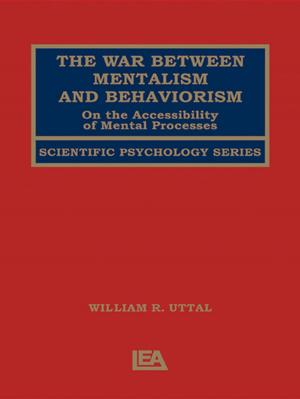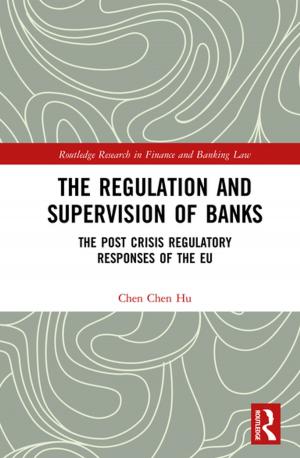| Author: | Dr. Jack Reynolds | ISBN: | 9781317494058 |
| Publisher: | Taylor and Francis | Publication: | December 18, 2014 |
| Imprint: | Routledge | Language: | English |
| Author: | Dr. Jack Reynolds |
| ISBN: | 9781317494058 |
| Publisher: | Taylor and Francis |
| Publication: | December 18, 2014 |
| Imprint: | Routledge |
| Language: | English |
Understanding Existentialism provides an accessible introduction to existentialism by examining the major themes in the work of Heidegger, Sartre, Merleau-Ponty and de Beauvoir. Paying particular attention to the key texts, Being and Time, Being and Nothingness, Phenomenology of Perception, The Ethics of Ambiguity and The Second Sex, the book explores the shared concerns and the disagreements between these major thinkers. The fundamental existential themes examined include: freedom; death, finitude and mortality; phenomenological experiences and 'moods', such as anguish, angst, nausea, boredom, and fear; an emphasis upon authenticity and responsibility as well as the denigration of their opposites (inauthenticity and Bad Faith); a pessimism concerning the tendency of individuals to become lost in the crowd and even a pessimism about human relations more generally; and a rejection of any external determination of morality or value. Finally, the book assesses the influence of these philosophers on poststructuralism, arguing that existentialism remains an extraordinarily productive school of thought.
Understanding Existentialism provides an accessible introduction to existentialism by examining the major themes in the work of Heidegger, Sartre, Merleau-Ponty and de Beauvoir. Paying particular attention to the key texts, Being and Time, Being and Nothingness, Phenomenology of Perception, The Ethics of Ambiguity and The Second Sex, the book explores the shared concerns and the disagreements between these major thinkers. The fundamental existential themes examined include: freedom; death, finitude and mortality; phenomenological experiences and 'moods', such as anguish, angst, nausea, boredom, and fear; an emphasis upon authenticity and responsibility as well as the denigration of their opposites (inauthenticity and Bad Faith); a pessimism concerning the tendency of individuals to become lost in the crowd and even a pessimism about human relations more generally; and a rejection of any external determination of morality or value. Finally, the book assesses the influence of these philosophers on poststructuralism, arguing that existentialism remains an extraordinarily productive school of thought.















